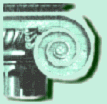
|

Abstracts in English - Tietolinja 2/2004 |
Past history and future prospects of Finnish national library databasesHelsinki University Library - The National Library of Finland is undergoing a profound change. Although it will still remain a special institution under the University of Helsinki, the status of National Library will be more pronounced in the future. As the technical infrastructure is also rapidly developing, writing a scenario for IT services is especially challenging at the moment. Juha Hakala discusses the history and current status of Finnish national library databases, the Linnea Union Catalogues and the National bibliography FENNICA. In the future they will be complemented by new information retrieval portals and digital object management systems, but also challenged by a phenomenon called "Amazoogle", i.e. Amazon.com and Google. For further information, please, contact
The Triangle : practical problemsThe current challenge in the National Library of Finland is getting the three main systems - the LINNEA Library System (Voyager), the NELLI Information Retrieval Portal (MetaLib/SFX) and the DORIA Document Management System (ENCompass) - to work together. This project is commonly known as the Triangle. The main problems have to do with user authentication, simultaneous searching, and OpenURL links. In this article Ari Rouvari discusses the different options and possible solutions for getting the three systems to interact in the best possible manner. For further information, please, contact
Ex President meets Doria : on implementing ENCompassThe DORIA project (formerly known as DOMS) has reached production phase. The ENCompass for Digital Collections software was installed in the beginning of September. The first pilot was the Institute for Cultural Research at the University of Helsinki. They are currently digitising and saving their extensive reserarch archives in the ENCompass system. The Dublin Core format is used for describing the material. Another pilot project is the complete works of the former President of Finland, Dr. Urho Kekkonen. The bibliographic references were entered in the Linnea system Article Database ARTO and the digitised texts in DORIA. Several MARC/XML conversions were needed to interlink the materials with the references. For further information, please, contact
Who uses Elektra?Elektra is one of the few Finnish online services containing full text scientific material. It is maintained by Helsinki University Library and Kopiosto, the Finnish Copyright Society. In the initial stages of the project also the Federation of Finnish Learned Societies was involved. The service focuses mainly on recent articles in Finnish scientific journals. Since 2004 Elektra has been complemented by the Peri+ service containing older digitised materials. This is a report on the use of the service with reflections also on its future prospects and challenges. For further information, please, contact
HUL, FRBR and OCLC : liberating OPACsOld library card files and OPACs have much in common, too much actually. Both use the same cataloguing rules that were created for printed bibliographies. The elements of description also have much in common, and they are used to describe first and foremost manifestations. The OPAC provides technical means to break loose from the idiosyncracies of card catalogues, but it took almost two decades before the objectives were actually reconsidered. FRBR (Functional Requirements for Bibliographic Records) developed by IFLA is a bold leap forward; the four-step model (work - expression - manifestation - item) is no longer applicable for printed bibliographies or card files. However, it brings no radical changes to the cataloguing rules themselves; it is the practical procedures and the library systems that need to be adapted. In 2004 Helsinki University Library made a deal with OCLC for creating FRBR records of Finnish National Bibliography material. The key issues are:
For further information, please, contact
MARC21-Fin or MARC21Finnish libraries are currently using three different versions of the MARC format for cataloguing. Most public libraries still use the old FINMARC(98), whereas the university and polytechnic libraries are using a version called MARC21-Fin designed solely for saving data in their joint library system, Voyager. A few public libraries use the international MARC21. Needless to say this is not an ideal situation and the Voyager user libraries have now opened a discussion on the possibility to change over to MARC21. This would require a lot of extra work, though, and therefore there are still strong views also against it. For further information, please, contact
Metadata people ShanghaiedThe annual conference of Metadata and Dublin Core format, DC2004 (http://dc2004.library.sh.cn/english/prog/) was held in Shanghai, China. Besides the conference itself there were also several workshops. Jani Stenvall reports on the conference and also discusses latest developments within the Dublin Core Metadata Initiative. For further information, please, contact
|
|
|
|